Only a few minutes into a conversation with famed European music producer Giorgio Moroder and he's already dropped a bombshell.
The 75-year-old inventor of disco, who's dazzling fans old and new with Deja Vu, his first new album in 30 years, says he's actually never met most of the guest singers on the album, which features some of the today's biggest dance club queens, including Charlie XCX, Kylie Minogue, and Britney Spears.
Not even Sia, who sings Deja Vu's breathtaking title track?
"It's all done now over the Internet," Moroder says, sounding disappointed. "I want to meet her!"
In Sia's case, Moroder admits, the singer, who these days is herself a much-sought-after producer, handled just about everything. "I gave her the track with a certain melody, and she did the rest. She wrote the top line, the lyrics. She did the overdubs. So she basically gave me the finished song back."
That's not how it worked back in the 1970s when the Italian-born Moroder, who many consider the godfather of EDM, became the toast of Studio 54 by producing groundbreaking dance music by Donna Summer. Moroder was also the mastermind behind soundtracks for several blockbuster movies, including Midnight Express, Scarface, American Gigolo, Flashdance, and Top Gun, the latter three leading to his co-writing and producing Blondie's "Call Me," Irene Cara's "Flashdance ... What A Feeling," and Berlin's "Take My Breath Away."
His full list of collaborators includes everyone from David Bowie to Daft Punk.
Moroder still holds a special place in his heart for disco queen Donna Summer, who died in 2012. The two met in the early 1970s while both were living in Germany -- Summer was married at the time to German actor Helmut Sommer -- and together they went on to create the template for modern dance music with 1977's groundbreaking "I Feel Love." Their fruitful union, which often included Moroder's studio partner Pete Bellotte, lasted the entire decade, resulting in a dizzying string of hits, including "Love To Love You Baby," "Last Dance" "On the Radio," "MacArthur Park," "Dim All the Lights," and "Bad Girls." In 1997 they reunited for Summer's single "Carry On."
"Donna was totally unknown when I found her," Moroder remembers. "She was no expert with recording. Not that I was an expert, but I had arranged some hits. So with her it was like, 'OK, Donna, try to sing this way. Now try to sing it a little that way.' I had to help her out a lot."
But that quickly changed, and the music-making became more of a partnership.
"She was very talented. It was much more of a personal work than it is today. I was with Donna for every minute she was in the studio until she left," Moroder says.
 At right: Moroder performing in Chicago in 2014
At right: Moroder performing in Chicago in 2014
Though Moroder modestly denies inventing EDM, he does acknowledge that he and Summer created a brand-new sound with 1977's landmark synthesizer-drenched disco song "I Feel Love."
Moroder remembers recording the galvanic tune.
"I just wanted to have something unusual, which could be the sound of the future. I didn't have any clue what I [was] going to do," Moroder recalls. "I was in the studio with this huge Moog synthesizer, which was a whole wall of cables. And I thought, OK, now let's do it! But what am I doing? I thought, OK, let's start with the bass line, and the bass guy helped me out: dum, dum, dum, dum. OK, that sounds good! And we went on from there."
"Then as soon as Donna puts the voice on, it really sounded well -- it sounded really good. Her romantic sound and lyrics. It took that mechanical, metallic sound and humanized it."
"It was only later on people told me, 'This is such an important song for the gay community.'"
Two years before, the two made waves with "Love to Love You." The slinky R&B-based song with the sexy moaning had many fans over the years speculating that Summer's ecstasy came from real lovemaking in the studio. Was there anything naughty happening as the tape rolled?
"I don't think so," Moroder says, laughing. "Actually, when we were recording the long version, I wanted her to moan more and exaggerate, and she wasn't able to do it at the beginning because there was the husband in the studio and the engineer."
Moroder wanted Summer to feel uninhibited.
"Basically, I threw everybody out. I dimmed all the lights, and so there was only a light on me and on her. She later said that she was lying on the floor and simulating. To be honest, I don't remember. She was probably sitting on a chair. I know she was looking at me -- at least, that's what I remember," Moroder says, joking.
Naturally, the steamy song, which eventually became Summer's first Billboard Top 40 hit, created a scandal. Moroder remembers that it was nearly impossible in those days to get any disco played on the radio, especially a song that sounded like several minutes of unbridled passion. Radio stations in Europe and the U.S., he recalls, banned the song.
It was LGBT listeners, Moroder says, who changed things. This did not surprise him. "Obviously, I knew the gay community was the driving force in all the discotheques, and they were the people who were able to get some of these songs on the radio," he says. "The long version of 'Love to Love You' was almost forced on the radio stations by the gay community. I am very grateful to them."
Growing up in a macho Italian culture, was Moroder always comfortable with his LGBT fan base?
"Oh, yes," he says. "I was always comfortable, absolutely. In fact, I had several [gay] friends when I worked in Munich in the late '70s. There was a discotheque there where we would go sometimes -- I don't think it was a gay disco, but there were a lot of gays there."
Moroder says he spent his three decades outside of the music studio like any retiree would -- traveling, playing golf, and spending time with Francisca, his wife of many years. That all changed in 2013 when electronica stars Daft Punk contacted him and asked to work together. The result was the poignant tribute "Giorgio By Moroder," featured on Daft Punk's 2013 Random Access Memories. Moroder even narrated the epic nine-minute homage to himself.
"That was a funny thing," Moroder recalls. "One day after we spoke about collaborating, they called me and told me to come to the studio. So I went to the studio thinking, OK, let's sit down and the piano and we may compose a song or something. But they said no, they don't want that. They just want me to talk. So I spoke about my life for probably two hours."
What was it like having the tables turned and playing the guest diva role on a dance tune?
 "I was absolutely surprised how well they got the voice," says Moroder, who speaks with a thick Italian-by-way-of-Munich accent. "It's not like -- what's that sexy guy who was speaking? Remember the disco guy, the black guy with the low voice?"
"I was absolutely surprised how well they got the voice," says Moroder, who speaks with a thick Italian-by-way-of-Munich accent. "It's not like -- what's that sexy guy who was speaking? Remember the disco guy, the black guy with the low voice?"
Barry White?
"Yes! I am no Barry White," Moroder says, laughing again. "I thought, What are they going to do with my voice? I must say, it was a little emotional too, because finally you hear yourself talking about your life. I only heard the song two times and I am not going to hear it again."
That song became the catalyst for Moroder's comeback, this year's Deja Vu, and a move from Europe back to Los Angeles. He now has a jam-packed schedule of future projects as well as collaborations with, among others, Skrillex, Lady Gaga, and Lana Del Rey.
It is just like deja vu, isn't it? Moroder's music is filling the clubs again. Surely he's been hitting the dance floor?
"I am an absolute bad dancer," Moroder says shyly.
Wait a minute. Giorgio Moroder, the inventor of disco, the godfather of EDM, doesn't dance?
"No," he says, sighing. "I can't dance at all. In fact, in the 1970s when disco came out, I had to emphasize the kick in the drum and the bass on my music so that I could at least try to dance. I would go in all the discotheques but only for a drink."
"Certainly not to dance."
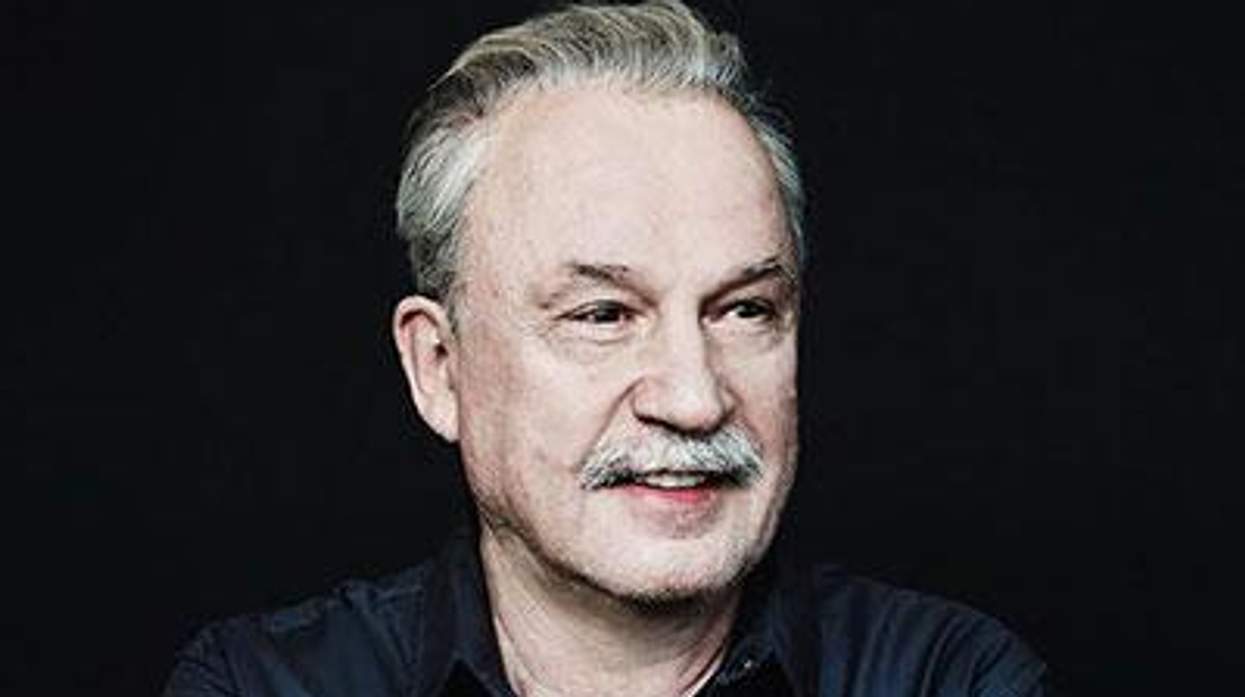

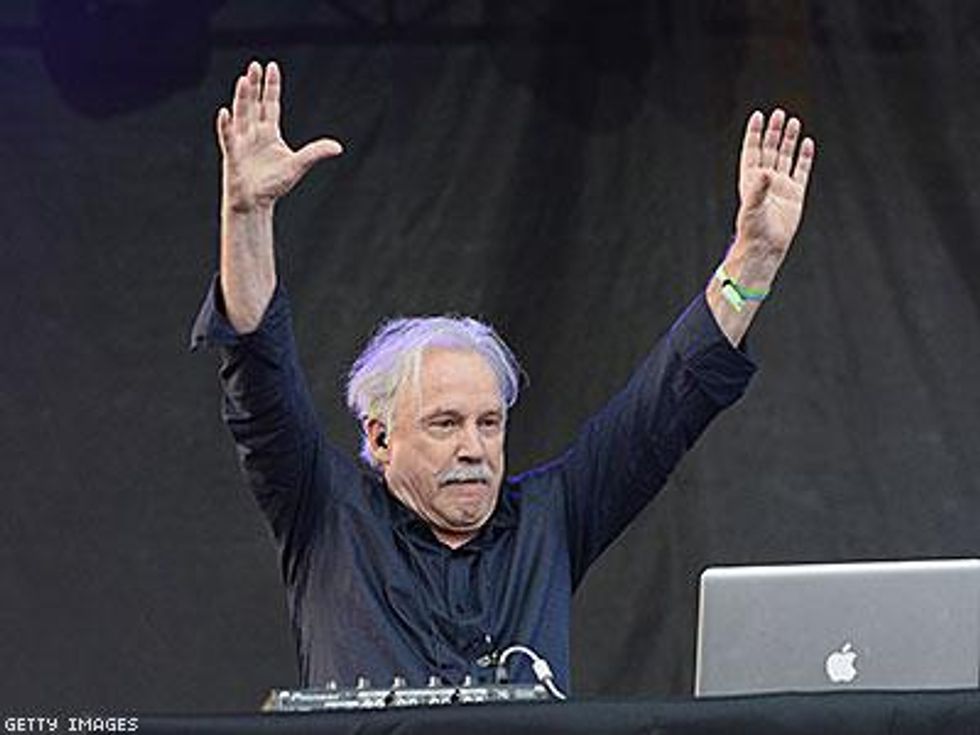 At right: Moroder performing in Chicago in 2014
At right: Moroder performing in Chicago in 2014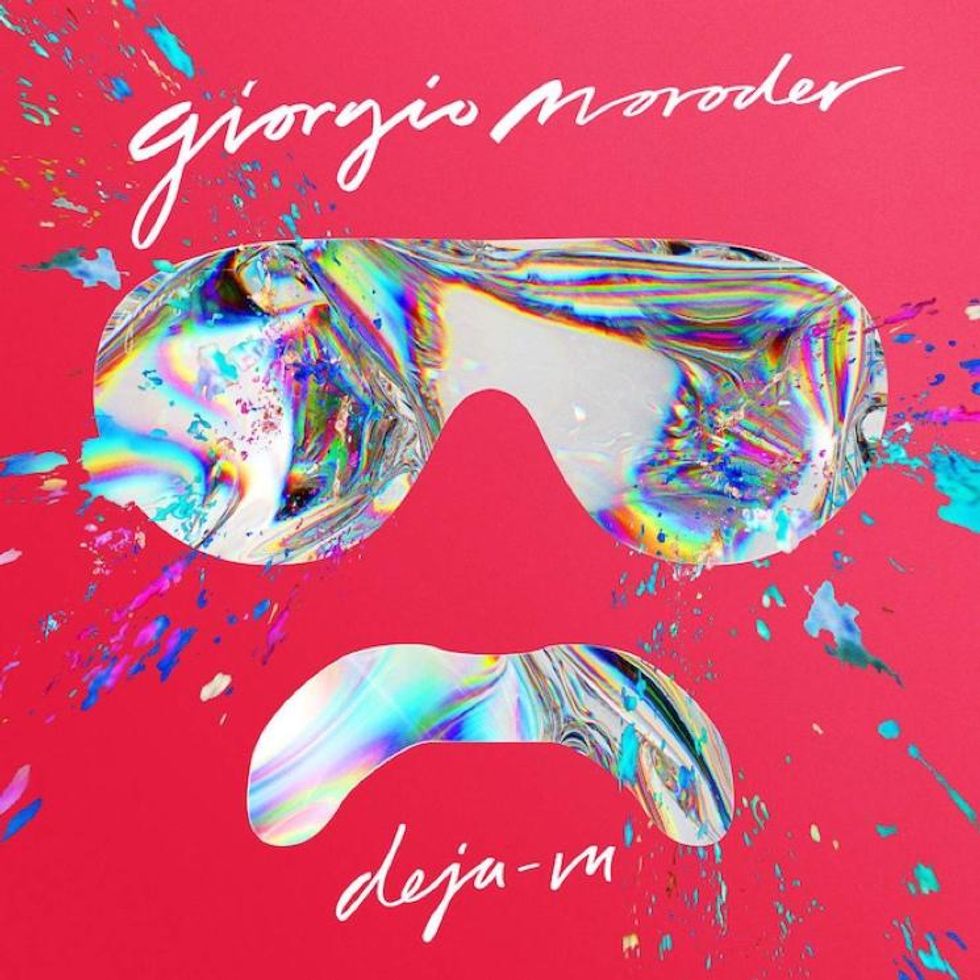 "I was absolutely surprised how well they got the voice," says Moroder, who speaks with a thick Italian-by-way-of-Munich accent. "It's not like -- what's that sexy guy who was speaking? Remember the disco guy, the black guy with the low voice?"
"I was absolutely surprised how well they got the voice," says Moroder, who speaks with a thick Italian-by-way-of-Munich accent. "It's not like -- what's that sexy guy who was speaking? Remember the disco guy, the black guy with the low voice?"















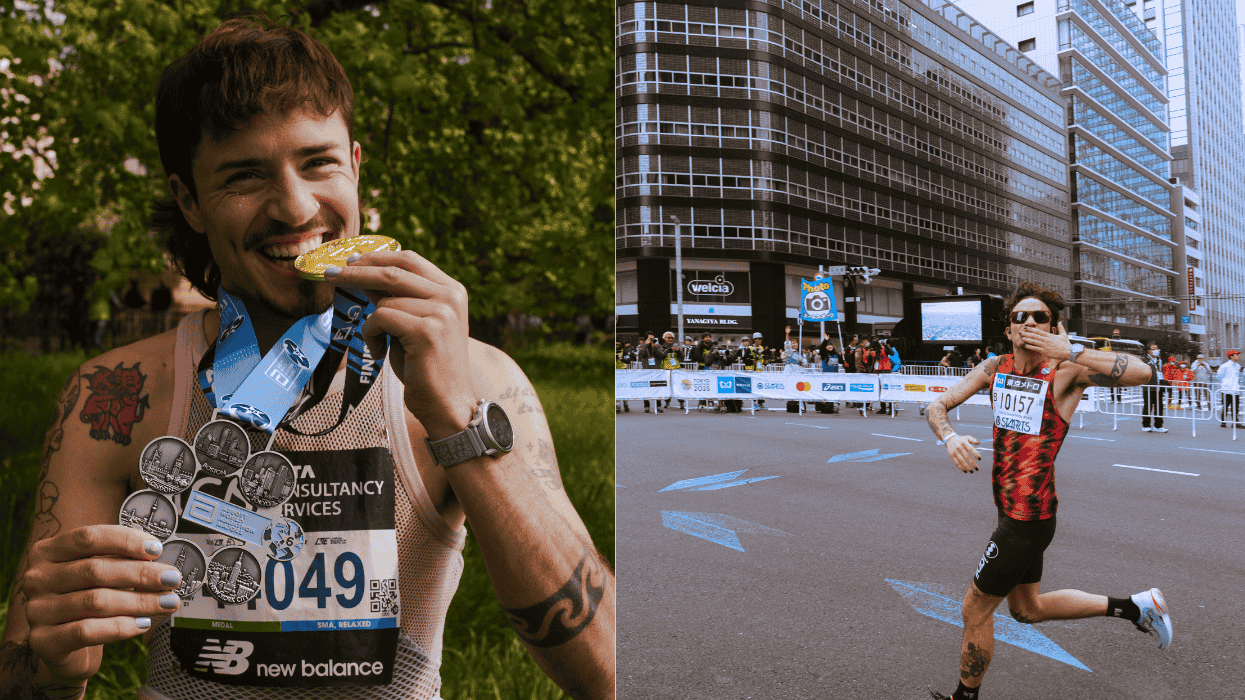











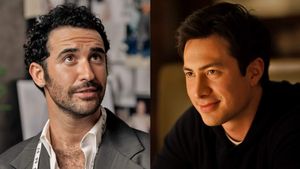









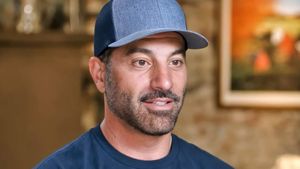






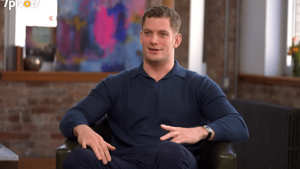





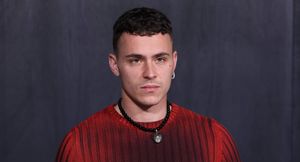














Charlie Kirk DID say stoning gay people was the 'perfect law' — and these other heinous quotes